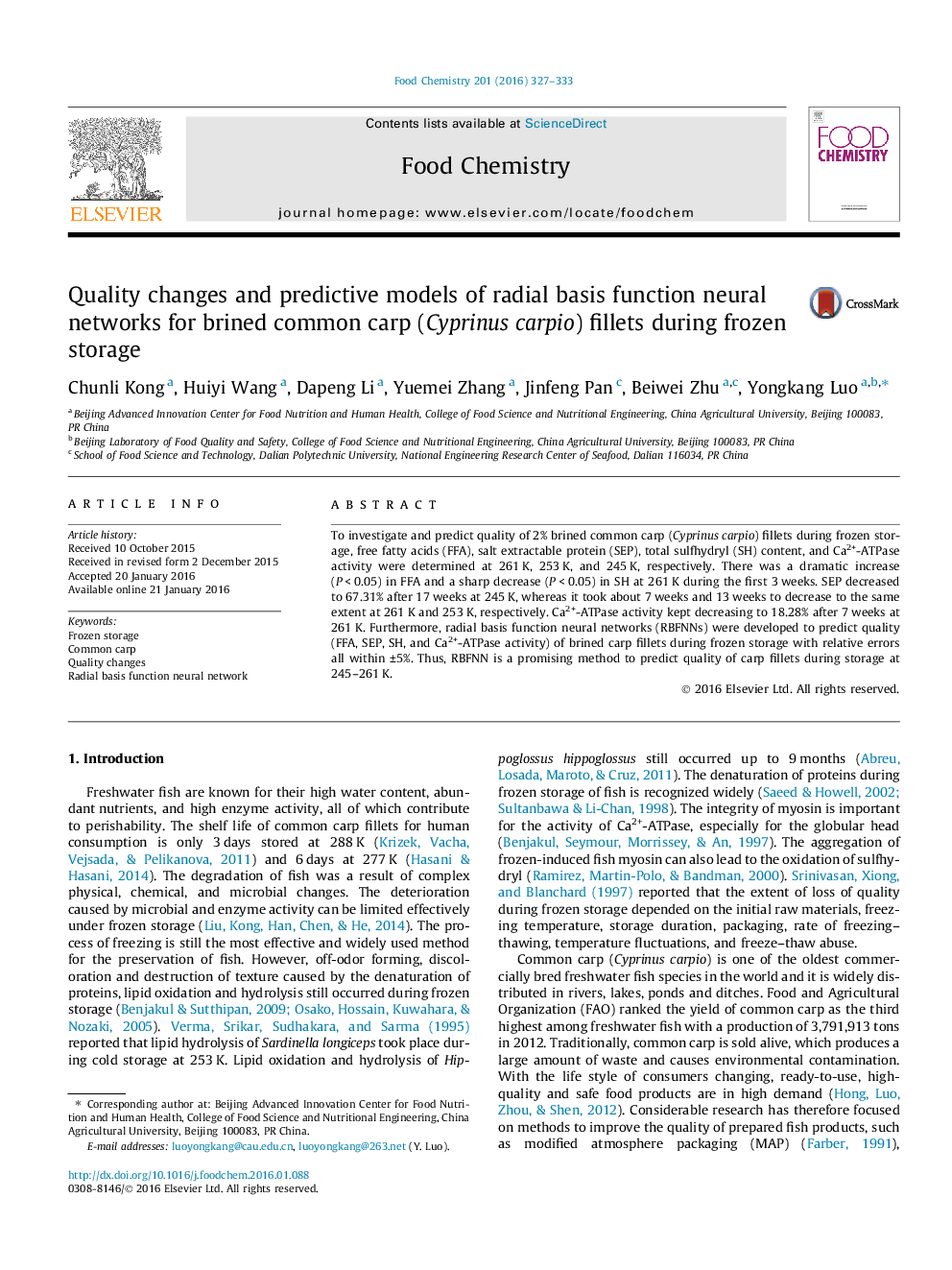| Article ID | Journal | Published Year | Pages | File Type |
|---|---|---|---|---|
| 7589612 | Food Chemistry | 2016 | 7 Pages |
Abstract
To investigate and predict quality of 2% brined common carp (Cyprinus carpio) fillets during frozen storage, free fatty acids (FFA), salt extractable protein (SEP), total sulfhydryl (SH) content, and Ca2+-ATPase activity were determined at 261 K, 253 K, and 245 K, respectively. There was a dramatic increase (P < 0.05) in FFA and a sharp decrease (P < 0.05) in SH at 261 K during the first 3 weeks. SEP decreased to 67.31% after 17 weeks at 245 K, whereas it took about 7 weeks and 13 weeks to decrease to the same extent at 261 K and 253 K, respectively. Ca2+-ATPase activity kept decreasing to 18.28% after 7 weeks at 261 K. Furthermore, radial basis function neural networks (RBFNNs) were developed to predict quality (FFA, SEP, SH, and Ca2+-ATPase activity) of brined carp fillets during frozen storage with relative errors all within ±5%. Thus, RBFNN is a promising method to predict quality of carp fillets during storage at 245-261 K.
Related Topics
Physical Sciences and Engineering
Chemistry
Analytical Chemistry
Authors
Chunli Kong, Huiyi Wang, Dapeng Li, Yuemei Zhang, Jinfeng Pan, Beiwei Zhu, Yongkang Luo,
